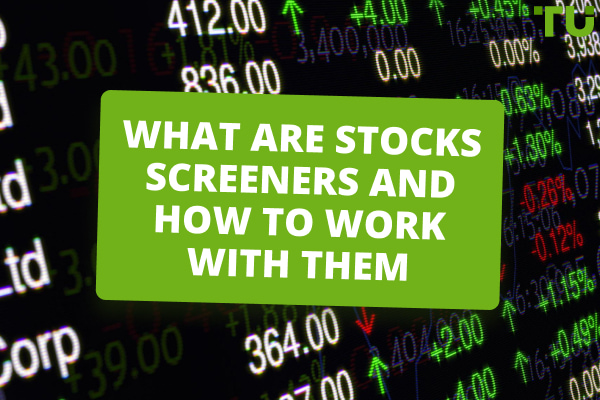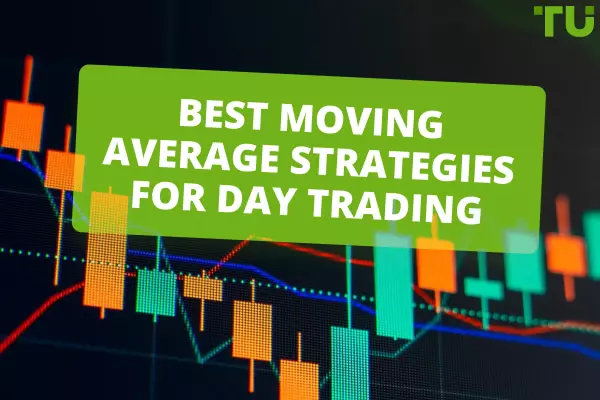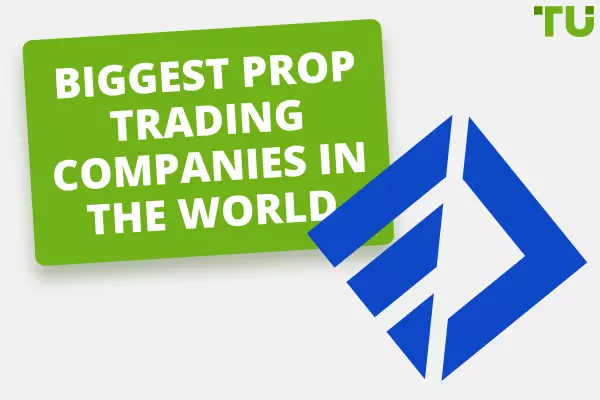What is the highest leverage in trading?
This depends on the jurisdiction in which the broker is registered. For example, a broker regulated offshore can offer leverage up to 1:3000. In countries with strict financial regulation, the normal maximum leverage is 1:30.
Using the largest available leverage can be attractive in the fast-paced world of Forex trading. Traders frequently want to increase their prospective profits, but the idea of leverage has two sides, and when used improperly, it can result in significant losses. This essay offers helpful insights on when it might be considered and, more significantly, when it should be treated with caution, serving as a lighthouse for individuals who have thought about the allure of high leverage.
What is leveraged trading?
With leveraged trading, an investor can increase their trading position beyond what they could with their cash by using borrowed money, which a broker often gives. It entails trading on margin, which provides participants with control over a position size greater than their initial investment and may magnify gains and losses. While trading using leverage can result in substantial returns in a favorable market, the dangers are also higher because of the increased exposure. Before engaging in leveraged trading, it is essential for traders to effectively manage risk, set stop-loss orders, and have a thorough grasp of the markets.
Read the complete explanation of forex leverage cost to learn better in the article - Forex Trading Leverage cost explained.
Why does the size of leverage differ from broker to broker?
Leverage offered by brokers varies greatly, and regulatory factors frequently affect the same.
-
Regulatory requirements: Brokers must abide by the rules set forth by the financial authorities in their jurisdictions. For maintaining market stability and safeguarding small-scale investors from excessive risk, these regulations frequently specify the maximum leverage ratios that brokers may provide to traders
-
Risk appetite of the broker: Different brokers may have different risk appetites. While some brokers prioritize risk management and provide lesser leverage to protect both traders and the broker's financial stability, others focus on luring traders looking for possibly higher earnings. Moreover, depending on the risk tolerance of their clientele, brokers may change leverage. Higher leverage allowances may be given to seasoned traders than to newcomers
-
Asset type: Leverage may change depending on the asset type being traded. For instance, due to market volatility and liquidity variations, Forex and cryptocurrencies frequently have larger leverage than equities
-
Competitive positioning: To attract traders, brokers may use leverage as a competitive advantage. One marketing tactic to distinguish out in a crowded market is to provide more alluring leverage ratios
Learn more about offshore brokers and their advantages for better clarification in the article - Best offshore brokers to trade Forex.
Why leverage differs from one trading instrument to another?
The liquidity of the trading instrument could be one of the primary reasons for leverage that varies from one trading instrument to another. The term "liquidity" describes how quickly an asset can be bought or sold without substantially impacting its price. Here are some ways that liquidity affects leverage:
-
Relationship between liquidity and leverage: Highly liquid assets, like important currency pairs in the Forex market or large-cap equities, typically have higher leverage because they can absorb higher trading volumes without experiencing significant price swings. In contrast, less liquid assets frequently have lower leverage to reduce the danger of dramatic price swings from huge trades, such as small-cap stocks or exotic currency pairs
-
Risk management: Brokers modify leverage to balance risk and potential profit. Low-leverage trading on illiquid assets makes it less probable for traders to experience sudden market movements that could result in big losses. On the other hand, increased leverage in liquid markets can increase profits but also increase the danger of sudden price swings
-
Regulation: Regulatory agencies frequently impose differing leverage limitations for certain asset types depending on the perceived risk levels of various asset classes. Due to fluctuations in liquidity, Forex markets, for example, may have larger leverage restrictions than commodities or cryptocurrencies
Why leverage is different for traders with different experience?
Leverage is frequently variable for each trader because of the perceived risk highly affected by each trader's experience. Professional traders are assumed to have a deeper understanding of the markets and risk management, they are frequently given access to bigger trading leverage. This differentiation operates as follows:
-
Experience and expertise: Successful traders often have a history of trading and are well-versed in financial markets. The possibility of excessive losses when utilizing more leverage is decreased because of their experience, which enables them to make better-educated judgments and manage risks efficiently
-
Risk assessment: Prior to granting traders additional leverage, brokers frequently evaluate the risk profile of the traders. Due to their expertise and wealth, professional traders are seen as less dangerous, which makes it safer for brokers to grant them larger leverage
-
Contracts with clients: Professional traders frequently sign contracts admitting the dangers of using more leverage. Providing legal protection for both the trader and the broker makes sure that experts are aware of the possibility of substantial losses
What is max leverage in Forex?
A key element that impacts both the amount of risk and possible profits for traders is the maximum leverage in the Forex market. While the precise figure may change depending on the law and the broker's policies, in actuality, we have seen cases with amazing leverage of up to 1:3000. Find out what are the risks of high leverage in the TU article.
It's crucial to comprehend the implications of such large leverage and how it might alter your trading approach. We suggest reading the complete article here to learn more about this subject and find brokers who offer high-leverage alternatives. It offers insightful advice on how to leverage your Forex transactions successfully while controlling risk.
Read about the best high-leverage Forex brokers of 2023 to understand more in the article - 19 Best High Leverage Forex Brokers in 2023.
What is the maximum leverage provided by strictly regulated brokers?
The maximum leverage for the retail traders can go for depends on brokers to brokers and country to country. For example:
-
In the United States: The CFTC and the National Futures Association (NFA) have implemented regulations that limit maximum leverage for Forex trading to 50:1 for major currency pairs and 20:1 for non-major currency pairs, along with other restrictions and risk disclosure requirements
-
In the European Union: ESMA has established leverage limits for retail traders, such as 30:1 for major Forex pairs, 20:1 for non-major pairs, and even lower limits for commodities and cryptocurrencies
Do I need to trade at maximum leverage?
Trading with the highest possible leverage might be alluring since it offers the chance to make big profits. However, it's important to address this query from a balanced standpoint, taking into account both the benefits and drawbacks of high leverage in the Forex market.
👍 Pros of trading at maximum leverage
• Amplified profit potential: High leverage enables you to manage larger holdings with a lower initial investment, which may result in more significant rewards
• Diversification of your portfolio: With less cash needed, you can vary your trading portfolio and experiment with other currency pairs
👎 Cons of trading at maximum leverage
• Increased risk: Using a lot of leverage exposes you to more risk of losing money. Even a slight downward price change can result in substantial losses
• Margin calls: Margin calls are more likely when trading with full leverage, and they could force you to make further deposits to hold onto your positions
Balanced advice and risk management:
-
Assess your risk tolerance: Assess your level of risk tolerance and your financial resources. Not every trader should use the highest possible leverage
-
Use leverage wisely: Consider employing leverage as a tool rather than as a requirement by applying it wisely. To succeed in trading, you don't need to use the highest possible leverage
-
Risk management strategies: To reduce possible losses, use risk management strategies including stop-loss orders. Increase portfolio diversity to reduce risk
-
Education and practice: Spend time studying and honing your trading techniques. A trader who is knowledgeable is better able to manage leverage sensibly
Best Forex brokers 2024


Conclusion
As we wrap up our discussion on leveraged trading, it's essential to reflect on the key takeaways. Leveraged trading offers the potential for increased profits and portfolio diversification, but it also exposes traders to higher levels of risk. The decision to utilize leverage should be made with caution and a thorough understanding of the associated risks.
FAQs
Is 1:500 leverage high?
A leverage of 1:500 is indeed regarded as high. With it, you may manage a sizable position with comparatively little capital, but it also raises the risk of sizable losses.
Can I use 100x leverage?
Due to the significant risk involved, it is exceedingly difficult to locate brokers offering 100x leverage in regulated markets. Most trustworthy brokers follow more stringent leverage restrictions.
What is 100X leverage in Forex?
When you employ leverage, you are essentially engaging in a financial strategy where they commit a sum of money that can be substantially greater—by factors such as five, ten, or even one hundred times—than the actual capital initially invested. For instance, in the case of trading with a leverage ratio of 100x, a deposit of $1,000 into one's trading account has the potential to facilitate a trade valued at $100,000.
Which leverage is better, 1:100 or 1:500?
Leverage options range from 1:100 to 1:500, depending on your risk appetite and trading approach. While 1:100 is comparatively less risky, 1:500 has a bigger potential for reward but also a higher degree of risk.
Glossary for novice traders
-
1
Broker
A broker is a legal entity or individual that performs as an intermediary when making trades in the financial markets. Private investors cannot trade without a broker, since only brokers can execute trades on the exchanges.
-
2
Leverage
Forex leverage is a tool enabling traders to control larger positions with a relatively small amount of capital, amplifying potential profits and losses based on the chosen leverage ratio.
-
3
Trading
Trading involves the act of buying and selling financial assets like stocks, currencies, or commodities with the intention of profiting from market price fluctuations. Traders employ various strategies, analysis techniques, and risk management practices to make informed decisions and optimize their chances of success in the financial markets.
-
4
Risk Management
Risk management is a risk management model that involves controlling potential losses while maximizing profits. The main risk management tools are stop loss, take profit, calculation of position volume taking into account leverage and pip value.
-
5
Forex Trading
Forex trading, short for foreign exchange trading, is the practice of buying and selling currencies in the global foreign exchange market with the aim of profiting from fluctuations in exchange rates. Traders speculate on whether one currency will rise or fall in value relative to another currency and make trading decisions accordingly.
Team that worked on the article
Upendra Goswami is a full-time digital content creator, marketer, and active investor. As a creator, he loves writing about online trading, blockchain, cryptocurrency, and stock trading.
Dr. BJ Johnson is a PhD in English Language and an editor with over 15 years of experience. He earned his degree in English Language in the U.S and the UK. In 2020, Dr. Johnson joined the Traders Union team. Since then, he has created over 100 exclusive articles and edited over 300 articles of other authors.
Mirjan Hipolito is a journalist and news editor at Traders Union. She is an expert crypto writer with five years of experience in the financial markets. Her specialties are daily market news, price predictions, and Initial Coin Offerings (ICO).









